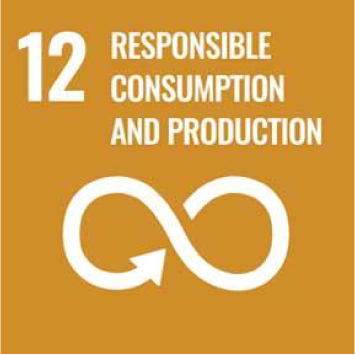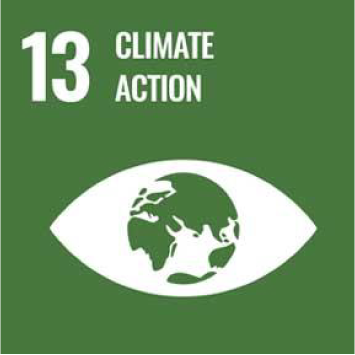
Cat. No.: JA2-7E-PDF
ISSN: 2817-7509
Table of Contents
- Executive Summary
- SECTION 1: Introduction to the Departmental Sustainable Development Strategy
- SECTION 2: Office of the Correctional Investigator’s Sustainable Development Vision
- SECTION 3: Listening to Canadians
- SECTION 4: Office of the Correctional Investigator’s Commitments
- SECTION 5: Integrating Sustainable Development
Executive Summary
The 2022 to 2026 Federal Sustainable Development Strategy (FSDS) is the first to be developed under a strengthened Federal Sustainable Development Act. It brings sustainable development goals, targets, milestones and implementation strategies across 101 federal organizations together in one place.
The 2022 to 2026 FSDS supports Canada’s efforts to advance the 17 Sustainable Development Goals (SDGs) of the United Nations 2030 Agenda for Sustainable Development. With the 17 SDGs as its frame, the strategy highlights federal government actions over the next four years to support their achievement.
Although in the past years, the Office of the Correctional Investigator was not bound by the Federal Sustainable Development Act and was not required to develop a full departmental sustainable development strategy, the Office adhered to the principles of the FSDS by implementing the Policy on Green Procurement through its corporate reporting and with the support of its service provider.
Under the strengthened Federal Sustainable Development Act, the Office of the Correctional Investigator is responsible for preparing its own Departmental Sustainable Development Strategy (DSDS) that aligns with the 2022 to 2026 FSDS and for reporting annually on progress made towards achieving its goals. The following 2023 to 2027 DSDS sets out what the Office of the Correctional Investigator will do to support the implementation of federal sustainable development goals and will ensure transparent reporting of the results being achieved.
Over the next four years, the Office will works towards the three following FSDS goals:
- Goal 10: Advance reconciliation with Indigenous Peoples and take action on inequality;
- Goal 12: Reduce Waste and transition to zero-emissions vehicles; and,
- Goal 13: Take action on climate change and its impacts.
SECTION 1
Introduction to the Departmental Sustainable Development Strategy
The 2022 to 2026 Federal Sustainable Development Strategy (FSDS) presents the Government of Canada’s sustainable development goals and targets, as required by the Federal Sustainable Development Act. This is the first FSDS to be framed using the 17 Sustainable Development Goals (SDGs) of the United Nations 2030 Agenda and provides a balanced view of the environmental, social and economic dimensions of sustainable development.
In keeping with the purpose of the Act, to make decision-making related to sustainable development more transparent and accountable to Parliament, the Office of the Correctional Investigator (the Office or OCI) supports the goals laid out in the FSDS through the activities described in this DSDS.
The Federal Sustainable Development Act also sets out 7 principles that must be considered in the development of the FSDS as well as DSDSs. These basic principles have been considered and incorporated in the Office of the Correctional Investigator's DSDS.
In order to promote coordinated action on sustainable development across the Government of Canada, this departmental strategy integrates efforts to advance Canada’s implementation of the 2030 Agenda National Strategy, supported by the Global Indicator Framework (GIF) and Canadian Indicator Framework (CIF) targets and indicators. The strategy also now captures SDG initiatives that fall outside the scope of the FSDS to inform the development of the Canada’s Annual Report on the 2030 Agenda and the SDGs.
SECTION 2
Office of the Correctional Investigator’s Sustainable Development Vision
The Office of the Correctional Investigator is a single program micro agency. Its mission is to ensure the fair and humane treatment of persons serving federal sentences. This is done by investigating individual complaints, drawing attention to human rights obligations, and holding the Correctional Services Canada (CSC) accountable for administering federal corrections in a way that is compliant to law, policy and fair decision-making.
At the Office of the Correctional Investigator, in consultation with the Policy and Research division, the Corporate Services and Planning division is responsible for developing, implementing and reporting on this strategy. In the past years, the OCI was not bound by the Federal Sustainable Development Act and was not required to develop a full departmental sustainable development strategy. Nevertheless, through its corporate reporting and with the support of its service provider, the OCI adhered to the principles of the FSDS by implementing the Policy on Green Procurement. Additionally, over the past years the OCI contributed to several performance target levels in support of the FSDS goals, such as reducing paper usage and increasing use of electronic invoices.
In accordance with the new 2022-26 FSDS, the OCI is responsible for contributing to the implementation strategies for the Goal 10: Advance reconciliation with Indigenous Peoples and take action on inequality; Goal 12: Reduce Waste and transition to zero-emissions vehicles; and, Goal 13: Take action on climate change and its impacts. The Department will support these FSDS goals through the activities described in this DSDS.
SECTION 3
Listening to Canadians
As required by the Federal Sustainable Development Act, the Office of the Correctional Investigator has taken into account comments on the draft 2022-2026 FSDS made during the public consultation held from March 11 to July 9, 2022.
During the public consultation, more than 700 comments were received from a broad range of stakeholders, including governments, Indigenous organizations, non-governmental organizations, academics, businesses, and individual Canadians in different age groups and of various backgrounds. The draft FSDS was also shared with the appropriate committee of each House of Parliament, the Commissioner of the Environment and Sustainable Development, and the Sustainable Development Advisory Council for their review and comment.
What We Heard
Across the submissions received, the Office of the Correctional Investigator identified sustainable development priorities and issues that affect us.
Among the main concerns of the OCI are the needs of unique populations whose vulnerabilities exist at the intersection of their incarcerated status and their gender (e.g., women, gender diverse individuals), race/ethnicity (e.g., Indigenous and Black individuals), age (e.g., aging/elderly), mental and physical health status (e.g., individuals with mental or physical health issues), etc. Specifically, given the increasing overrepresentation of Indigenous peoples under federal custody, which currently stands at nearly one-third of the federally incarcerated population overall, it is essential that as an oversight agency, the OCI’s attention remains focused on the problems faced by Indigenous peoples under federal sentence.
Additionally, with the promulgation of new policies in 2022 regarding the management of gender-diverse persons under federal sentence, the OCI will continue to investigate and monitor the experiences of gender-diverse individuals and the implementation of the new directives.
Therefore, the two key priorities identified during public consultations related to the Office’s mandate are:
- Amplifying Indigenous perspective, through Indigenous distinction and rights-based perspectives and cultural dimensions; and,
- Increasing consultations and content related to 2SLGBTQI+ and BIPOC communities.
What We Did
The Office of the Correctional Investigator took the above-mentioned key priorities and issues into consideration in this DSDS.
Further to the two key priorities identified during the public consultations that are related to the OCI’s mandate, in developing the Office’s DSDS goals, targets, and implementation strategies, consideration was given to how best to obtain, incorporate, and amplify Indigenous perspectives, as well as how to advance equity and inclusion. By operationalizing these two key priorities, specific goals, targets, and implementation strategies were developed for areas such as: improving staff cultural competency and awareness through regular and ongoing training; creating opportunities for participation and co-development by Indigenous organizations and businesses with concrete and achievable targets; and, increasing the breadth and depth of dialogue and partnerships with diverse and distinction based groups through engagements and stakeholder outreach.
Please find more information on the FSDS public consultation and its results in the FSDS Consultation Report
SECTION 4
Office of the Correctional Investigator’s Commitments

GOAL 10:
ADVANCE RECONCILIATION WITH INDIGENOUS PEOPLES AND TAKE ACTION ON INEQUALITY
FSDS Context:
In Goal 10, the target “Between 2023 and 2026, and every year on an ongoing basis, develop and table annual progress reports on implementing the United Nations Declaration on the Rights of Indigenous Peoples Act “ contains the implementation strategy:
- Implement the United Nations Declaration on the Rights of Indigenous Peoples Act
The United Declaration on the Rights of Indigenous Peoples Act (UNDA) requires the Minister of Justice, in consultation and cooperation with Indigenous peoples, to report annually to Parliament on progress made to align federal laws with the United Nations Declaration on the Rights of Indigenous Peoples (the Declaration) and on the development and implementation of the action plan. Organizations are asked to provide updates on departmental initiatives that align with the Declaration and/or contribute to its implementation.
As the national oversight agency for federal corrections, the OCI’s mandate is to respond to individual complaints as well as to investigate, make recommendations, and raise awareness on the needs and rights of individuals who are serving federal sentences, of which nearly one-third are individuals of Indigenous ancestry. All program areas within the agency (i.e., Corporate Services, Operations, and Policy & Research) contribute to advancing the programs, policies, and initiatives that support the departmental actions toward this goal. Investigations into the rights of Indigenous peoples, be they individual or systemic in scope, are fundamental to the work of the Office, in particular the work of the Operations and Policy & Research program areas. Additionally, the Office’s participation in broader interdepartmental initiatives (e.g., working group on the Indigenous Justice Strategy) support advancing larger government actions and efforts to advance this goal.
Target theme: Advancing reconciliation with First Nations, Inuit, and the Métis communities
Target: Between 2023 and 2026, and every year on an ongoing basis, develop and table annual progress reports on implementing the United Nations Declaration on the Rights of Indigenous Peoples Act (Minister of Justice and Attorney General of Canada)
| IMPLEMENTATION STRATEGY | DEPARTMENTAL ACTION | PERFORMANCE INDICATOR STARTING POINT TARGET | HOW THE DEPARTMENTAL ACTION CONTRIBUTES TO THE FSDS GOAL AND TARGET AND, WHERE APPLICABLE, TO CANADA’S 2030 AGENDA NATIONAL STRATEGY AND SDGS |
| Implement the United Nations Declaration on the Rights of Indigenous Peoples Act | Provide Indigenous cultural competency training and/or training on the United Nations Declaration on the Rights of Indigenous Peoples. Program: Corporate Services, Operations, and Policy and Research | Performance Indicator: Percentage of staff who have completed Indigenous cultural competency training (internal or external) Starting point: New Program starting fall 2023. Target: 25% in 2024-25; 75% by March 31, 2027 | Public servants are in a unique position to help build respectful relationships with Indigenous Peoples in Canada. This action encourages public service employees to increase their cultural competency skills and awareness of issues related to First Nations, Inuit and Métis in Canada, and their knowledge of the UN Declaration. This action contributes to the development of necessary cultural competency knowledge and skills to implement the UN Declaration. Relevant targets or ambitions: GIF Target - 10.3 Ensure equal opportunity and reduce inequalities of outcome, including by eliminating discriminatory laws, policies and practices and promoting appropriate legislation, policies and action in this regard |
Implement contracting practices to contribute to supporting Indigenous peoples’ participation in all aspects of Canada’s economy. Program: Corporate Services | Performance Indicator: Percentage of the Office of the Correctional Investigator’s total value of contracts awarded to Indigenous businesses. Starting point: New Program starting April 2023; Target: 3% in 2023-24; 5% by March 31, 2025. | Public servants are in a position to help build respectful relationships with Indigenous Peoples in Canada. This action takes into account and contributes to decreasing the socioeconomic gaps that persist between Indigenous individuals and other Canadians with respect to a range of matters as well as social factors having an impact on health and well-being. This action also contributes to implementing the UN Declaration. Relevant targets or ambitions: GIF Target - 10.2 By 2030, empower and promote the social, economic and political inclusion of all, irrespective of age, sex, disability, race, ethnicity, origin, religion or economic or other status | |
Hold engagement and consultation sessions with Indigenous individuals and/or organizations in an effort to advance dialogue and create opportunities to amplify the perspectives of Indigenous peoples and organizations. Program: Corporate Services, Operations, and Policy and Research | Performance Indicator: Number of engagement and consultation meetings/sessions held per year. Starting point: New Program starting fall 2023. Target: One session/meeting per quarter. 25% in 2024-25; 75% by March 31, 2027 | Public servants are in a unique position to help build respectful relationships with Indigenous Peoples in Canada. This action encourages public service employees to increase their cultural competency skills and awareness of issues related to First Nations, Inuit and Métis in Canada, and their knowledge of the UN Declaration. This action contributes to the development of necessary cultural competency knowledge and skills to implement the UN Declaration. Relevant targets or ambitions: GIF Target - 10.2: By 2030, empower and promote the social, economic and political inclusion of all, irrespective of age, sex, disability, race, ethnicity, origin, religion or economic or other status. |

GOAL 12:
REDUCE WASTE AND TRANSITION TO ZERO-EMISSION VEHICLES
FSDS Context:
According to the 2022 to 2026 FSDS, Goal 12 has three targets:
- By 2030, the Government of Canada will divert from landfills at least 75% by weight of non-hazardous operational waste;
- By 2030, the Government of Canada will divert from landfills at least 90% by weight of all construction and demolition waste; and,
- The Government of Canada’s procurement of goods and services will be net-zero emissions by 2050, to aid the transition to a net-zero, circular economy.
These targets are supported by the following three implementation strategies:
- Transform the federal light-duty fleet (all federal organizations owning conventional fleets);
- Strengthen green procurement criteria; and,
- Maximize diversion of waste from landfills (all federal organizations owning real property).
As a micro agency, OCI does not own any fleet. OCI’s real property needs are managed by the federal custodian, Public Services and Procurement Canada (PSPC). PSPC annually reports the waste generation and waste diversion of its Crown-owned portfolio as part of its Departmental Sustainable Development Strategy (DSDS) and to Treasury Board Secretariat’s Centre for Greening Government (TBS CGG). Furthermore, PSPC requires that multi-material recycling is implemented within its buildings, to the extent where the required recycling infrastructure and services exist in the community. OCI supports PSPC’s waste diversion program by effectively supporting waste sorting and collection As a micro agency, OCI does not own any fleet. OCI’s real property needs are managed by the federal custodian, Public Services and Procurement Canada (PSPC). PSPC annually reports the waste generation and waste diversion of its Crown-owned portfolio as part of its Departmental Sustainable Development Strategy (DSDS) and to Treasury Board Secretariat’s Centre for Greening Government (TBS CGG). Furthermore, PSPC requires that multi-material recycling is implemented within its buildings, to the extent where the required recycling infrastructure and services exist in the community. OCI supports PSPC’s waste diversion program by effectively supporting waste sorting and collection processes in our spaces. The objective of any occupant engagement programs is to improve occupants' awareness of waste and plastics and to shift behaviours to reduce waste and plastics in federal operations.
Finally, OCI relies on service providers for a number of its internal services, including procurement. Therefore, we support and align with Public Safety criteria to strengthen green procurement. Additionally, OCI commits to ensuring that its corporate services employees responsible for supporting the procurement needs as well as its contracting delegates complete the mandatory green procurement training.
Target theme: Federal Leadership on Responsible Consumption
Target: The Government of Canada’s procurement of goods and services will be net-zero emissions by 2050, to aid the transition to a net-zero, circular economy (All Ministers)
| IMPLEMENTATION STRATEGY | DEPARTMENTAL ACTION | PERFORMANCE INDICATOR STARTING POINT TARGET | HOW THE DEPARTMENTAL ACTION CONTRIBUTES TO THE FSDS GOAL AND TARGET AND, WHERE APPLICABLE, TO CANADA’S 2030 AGENDA NATIONAL STRATEGY AND SDGS |
| Strengthen green procurement criteria | Ensure all procurement and material management support specialists and contracting delegates are trained in green procurement (such as, the Canada School of Public Service course on green procurement, or equivalent) within two years of being identified Program: Corporate Services | Performance Indicator: Percentage of procurement and materiel management support specialists and contracting delegates trained in green procurement within two years of being identified Starting point: In 2022-23, 29% of procurement and material management support specialists trained in green procurement Target: 80% by March 31 2027 | Green procurement incorporates environmental considerations into purchasing decisions and is expected to motivate suppliers to reduce the environmental impact of the goods and services they deliver, and their supply chains. Relevant targets or ambitions: CIF Ambition: Canadians consume in a sustainable manner CIF Indicator: 12.2.1 Proportion of businesses that adopted selected environmental protection activities and management practices GIF Target: 12.7 Promote public procurement practices that are sustainable, in accordance with national policies and priorities |
In collaboration with the service providers, reduce the intake of paper proposals from supplier community by establishing an e‑bidding in competitive processes Program: Corporate Services | Performance Indicator: Percentage of competitive procurement files that use e‑bidding. Starting Point: 90% 2022 (Public Safety Data) Target: 100% in 2023 | Green procurement practices are also being applied in the procurement processes such as e-bidding and optimization of existing technology will reduce paper consumption and real property footprint Relevant targets or ambitions: CIF Ambition: Canadians consume in a sustainable manner CIF Indicator: 12.2.1 Proportion of businesses that adopted selected environmental protection activities and management practices GIF Target: 12.7 Promote public procurement practices that are sustainable, in accordance with national policies and priorities | |
Dispose of waste such as electronics and material management in an environmentally sound and secure manner which will reduce their presence in landfills where it can produce higher GHGs (GCsurplus, recycling programs, sound destruction) Program: Corporate Services Implement and maintain the ratio of IT assets per employee by implementing a One Device Policy with very limited exceptions Program: Corporate Services | Performance Indicator: Percentage of waste disposed of in an environmentally sound and secure manner Starting Point: New program starting fall 2023 Target: 100% in 2024 Performance Indicator: Percentage of employees complying with One Device Policy Starting Point: New program starting fall 2023 Target: 80% in 2024 | Green procurement policy also requires the department to develop as IT asset strategy as well as the implementation of an environmentally sound disposal process to contribute to the prevention, reduction, reuse and recycling of IT and material assets. Relevant targets or ambitions: CIF Ambition: Canadians consume in a sustainable manner CIF Indicator: 12.2.1 Proportion of businesses that adopted selected environmental protection activities and management practices GIF Target: 12.5 By 2030, substantially reduce waste generation through prevention, reduction, recycling and reuse |

GOAL 13:
TAKE ACTION ON CLIMATE CHANGE AND ITS IMPACTS
FSDS Context:
As per the FSDS Goal 13 the following two targets aim to take action on climate change and its impacts:
- The Government of Canada will transition to net-zero carbon operations for facilities and conventional fleets by 2050; and,
- The Government of Canada will transition to climate-resilient operations by 2050.
These targets are supported by the following four implementation strategies:
- Apply a greenhouse gas reduction life-cycle cost analysis for major building retrofits (all federal organizations owning real property);
- Implement the Greening Government Strategy through measures that reduce greenhouse gas emissions, improve climate resilience, and green the government’s overall operations;
- Modernize through net-zero carbon buildings (all federal organizations owning real property); and,
- Reduce risks posed by climate change impacts to federal assets, services and operations (owning real property).
As indicated under the Goal 12 context, OCI’s real property needs are managed by the federal custodian, Public Services and Procurement Canada (PSPC). OCI’s contribution to Goal 13 will be through its support to implement the Greening Government Strategy through measures that reduce greenhouse gas emissions, improve climate resilience, and green the government’s overall operations.
Target theme: Federal Leadership on Greenhouse Gas Emissions Reductions and Climate Resilience
Target: The Government of Canada will transition to climate-resilient operations by 2050.
| IMPLEMENTATION STRATEGY | DEPARTMENTAL ACTION | PERFORMANCE INDICATOR STARTING POINT TARGET | HOW THE DEPARTMENTAL ACTION CONTRIBUTES TO THE FSDS GOAL AND TARGET AND, WHERE APPLICABLE, TO CANADA’S 2030 AGENDA NATIONAL STRATEGY AND SDGS |
| Implement the Greening Government Strategy through measures that reduce greenhouse gas emissions, improve climate resilience, and green the government’s overall operations. | Ensure all relevant employees are trained on assessing climate change impacts, undertaking climate change risk assessments, and developing adaptation actions, if applicable, within two years of being identified. Program: Corporate Services, Operations and Policy and Research | Performance Indicator: Percentage of relevant employees trained on assessing climate change impacts, undertaking climate change risk assessments, and developing adaptation actions within two year of being identified Starting point: New program starting in 2024 Target: 10% trained by 2025; 70% by 2027 | Trained staff can identify risk to critical program delivery, and develop responses to increase the resilience of operations to impacts of climate change. Relevant targets or ambitions: CIF Ambition / Target: 13.3 Canadians are well-equipped and resilient to face the effects of Climate change CIF Indicator: 13.3.1 Proportion of municipal organization who factored climate change adaptation into their decision-making process GIF Target: 13.3 Improve education, awareness-raising and human and institutional capacity on climate change mitigation, adaptation, impact reduction and early warning |
Encourage sustainable business travel practices or commute to work through the implementation of a hybrid workplace. Program: Corporate Services, Operations and Policy and Research Improve video and teleconferencing capabilities, thereby reducing the need to commute and travel for in-person meetings and paper usage. Program: Corporate Services | Performance Indicator: Percentage of employees’ hybrid work arrangement meets 2-3days in office. Starting point: 80% Target: 90% by 2026-27 Performance Indicator: Number of boardrooms/collaborative spaces with video/teleconferencing capabilities such as MS365 and MS Teams light Starting point: New program starting in 2024 Target: one boardroom in 2025 | Due to its operational travel needs, the Office will ensure implementation of hybrid work arrangements and promote and encourage sustainable travel practices to reduce carbon footprint per employee. Relevant targets or ambitions: CIF Ambition / Target: 13.1 Canadians reduce their greenhouse gas emissionS CIF Indicator: 13.1 By 2030, reduce Canada's total greenhouse gas emissions by 40 to 45%, relative to 2005 emission levels. By 2050, achieve economy-wide net-zero greenhouse gas emissions. GIF Target: 13.2 Integrate climate change measures into national policies, strategies and planning |
SECTION 5
Integrating Sustainable Development
The Office of the Correctional Investigator is planning to further integrate the implementation of the United Nations Declaration on the Rights of Indigenous Peoples Act and the reduction of inequalities into its annual systemic investigation planning cycle. Additionally, through its ongoing review of internal policies and processes, the Office will further integrate greening government and green procurement initiatives.
The Office will continue to ensure that its decision-making process includes consideration of FSDS goals and targets, as required, through its SEA process. An SEA for a policy, plan or program proposal includes an analysis of the impacts of the given proposal on the environment, including on relevant FSDS goals and targets.
Public statements on the results of the OCI’s assessments are made public when an initiative that has undergone a detailed SEA. The purpose of the public statement is to demonstrate that the environmental effects, including the impacts on achieving the FSDS goals and targets, of the approved policy, plan or program have been considered during proposal development and decision-making.



